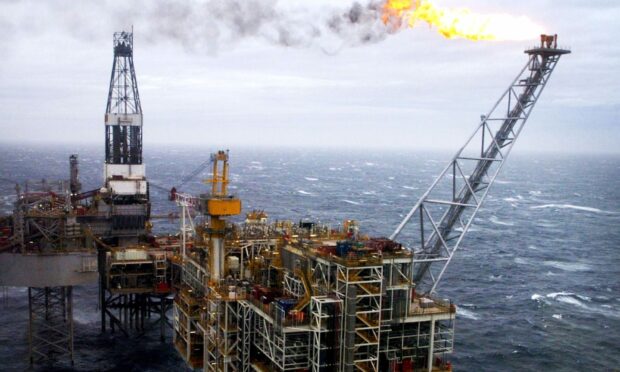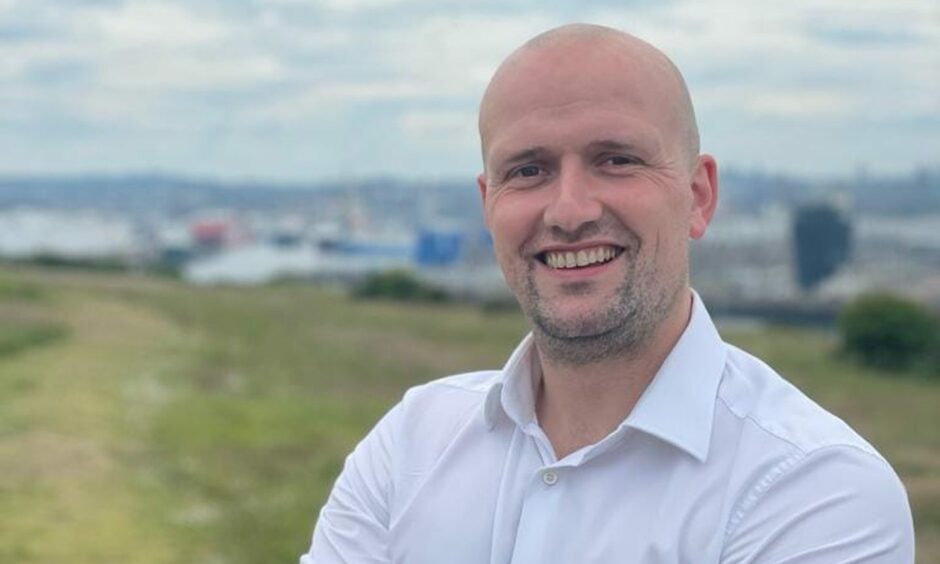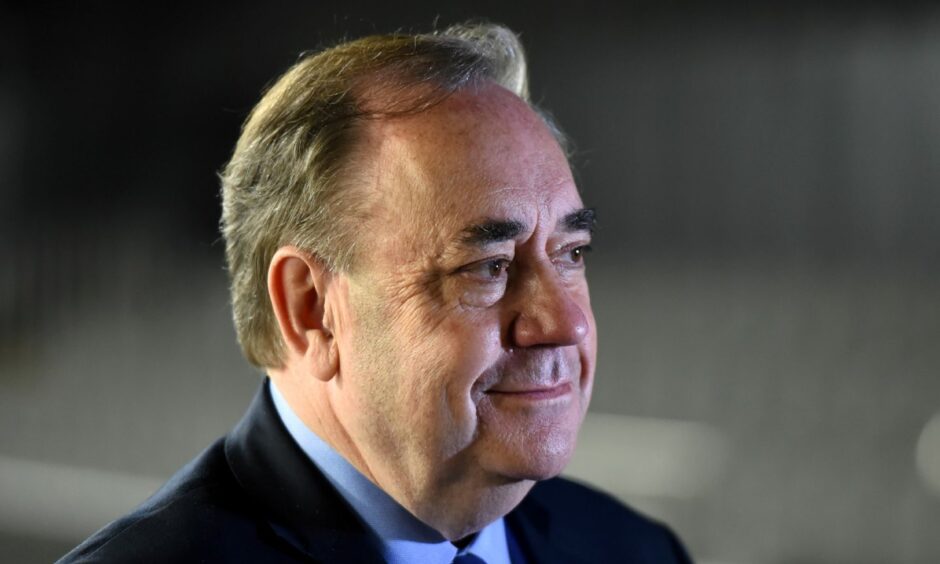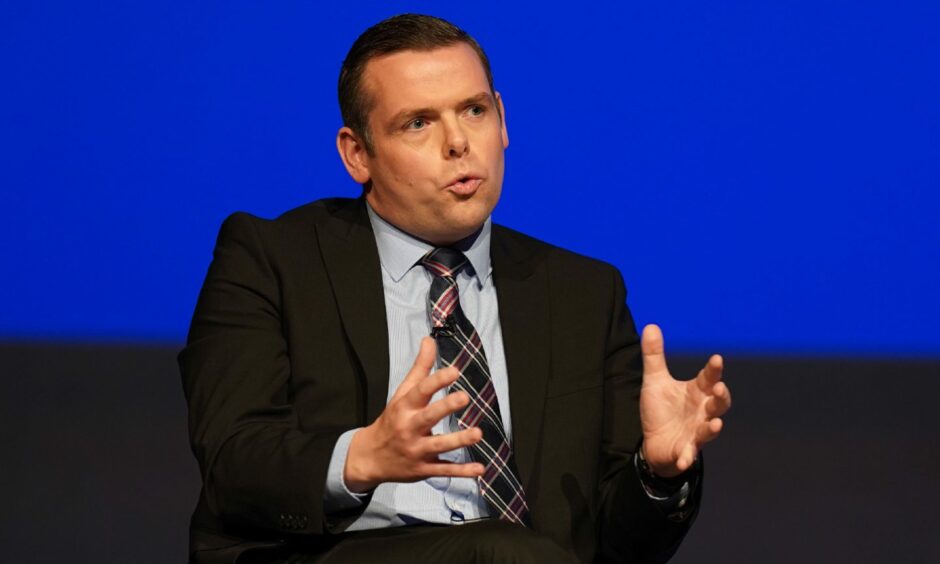A multibillion-pound increase in revenue from oil and gas in Scottish waters last year narrowed a large gap in spending and sparked another political row about the future of our energy-driven economy.
At face value, politicians welcomed the role the £9.4 billion played in cutting a big deficit, the difference between tax and spending, to £19.1bn.
But the official Government Expenditure and Revenue Scotland (Gers) figures for 2022-23 also show the role of a volatile source which sank during the recent downturn and was inflated by the brutal war in Ukraine.
Here’s how political parties reacted to the latest official snapshot for the economic health of the country.
‘Green’ wealth not yet captured
The SNP used to focus campaigning for independence based on oil resources. Its role was a central part of the independence debate before the 2014 referendum.
But the crash right after the vote wiped out what had been high revenues, showing how volatile the industry can be if it plays too large a part in spending plans.
Under Nicola Sturgeon, there was an attempt to think again and admit oil and gas should not have been baked in to the plans for an independent Scotland’s economic future.
The party – in government with the Greens – is now having its own debate, with vocal splits, on more drilling or a fast shift to renewables.
When the latest figures were published on August 16, Scottish Government minister Neil Gray said it’s important to note “green” wealth has not yet become clear in the figures.
He said finances are improving faster than the UK as a whole. He also claimed a full £1bn of the deficit is down to Tory government “mismanagement”.
‘Protect families’
SNP Westminster leader Stephen Flynn said any additional cash has to be used to help households.
“This enormous rise in revenue from Scotland’s oil and gas sector won’t surprise anyone, but will serve as stark reminder as to why the current UK prime minister is now so keen to see unlimited extraction from our North Sea,” he said.
“The revenues generated from Scotland’s oil and gas resources must be used to protect families against the cost of living crisis, whilst investing in sustainable energy technologies that protect Aberdeen’s economic future for the long-term.”
It’s Scotland’s Oil (again)
Meanwhile, former SNP leader Alex Salmond’s Alba party is echoing slogans from past debates in leaflets on “Scotland’s oil”.
In a plea to the wider independence movement, Alba MP for Kirkcaldy and Cowdenbeath, Neale Hanvey, said it would be “foolhardy” to turn away now.
However, they also hope to demonstrate that a new boom from renewables could follow in time.
“This could become as massive an economic and industrial advantage as oil and gas should have been – a second energy opportunity for Scotland,” said Mr Hanvey.
The ‘union dividend’
Conservatives are in a battle for votes with the SNP in the north-east, the centre for the oil and gas industry.
Moray MP Douglas Ross, the Scottish Tory leader, said: “The improving picture this year has been driven by increased revenues from the sector.
“That begs the question as to why other political parties have taken the astonishing decision to turn their back on the industry and the highly skilled workforce.
“In fact, they have been openly hostile to the industry. The latest Gers figures should prompt a re-think among SNP and Labour politicians who must recognise why the taps cannot be turned off too quickly.”
The “dividend” as part of being in the UK shows how resources can be spread to benefit more people, Tories say.
Conservatives and other pro-union parties point to the difference in spending and taxation, saying it is around £1,500 more per person in Scotland.
Alister Jack, the Scottish Secretary in the UK Government, said: “People in Scotland benefit to the tune of £1,521 per person thanks to higher levels of public spending.
“As we face cost of living pressures and unprecedented global challenges it is clear Scotland is better off as part of a strong United Kingdom.”
Let down by two governments?
Sir Keir’s party wants to move from reliance on oil and gas. The policy has frustrated some in the north-east, including among members.
But Labour wanted to point out the scale of the deficit under two rival government parties, not the size of the oil revenue.
The deficit is 9% of Scotland’s GDP, compared with 5.2% for the UK.
The party warns against further “austerity” from the SNP with independence, and blames the Tories at Westminster for inflicting a household bills crisis.
North-east Labour MSP Michael Marra said: “Our NHS is in permanent crisis, public services are at breaking point and economic growth is non-existent.”
Household bills keep rising
The Lib Dems in Scotland point to the costs of independence, but across the UK the party highlighted an elephant in the room.
Inflation is still a big problem, which separate figures show has put 50% or more on milk, among other soaring prices.
Scottish Lib Dem finance spokesman John Ferry said: “If the SNP really want to write another independence paper, perhaps they could use it to honestly set out whether it will be schools, pensions, the NHS or all three that they would cut if they ever achieved their dream of breaking up the UK.”





Conversation